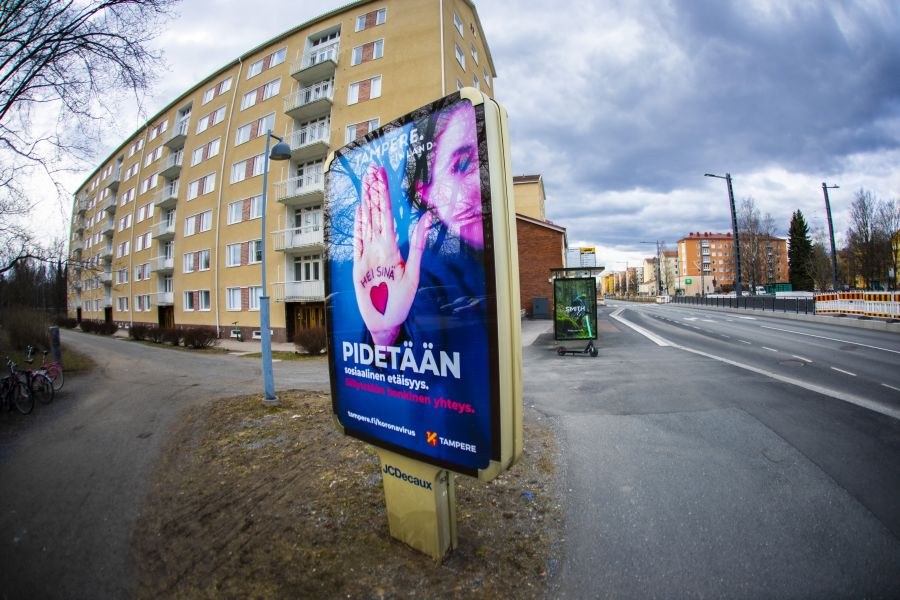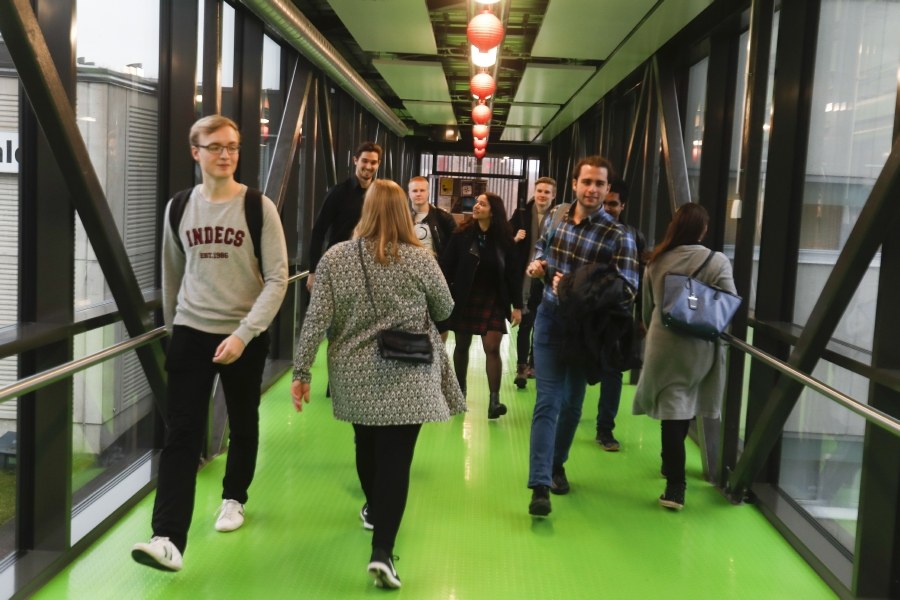New study explores the spread of the coronavirus and its prevention indoors

Tampere Universities have received close to €300,000 of funding from Business Finland for the License to Breathe project. The six-month project, to be launched in August, is carried out to identify and develop ways to prevent the transmission of the coronavirus in indoor environments.
The project is headed by Industry Professor Piia Sormunen, who joined the Civil Engineering Unit of Tampere University last spring.
“Based on current knowledge, the majority of COVID-19 transmission occurs indoors from the inhalation of airborne particles that contain the coronavirus. For example, a plume of aerosols generated by coughing can float around in the air at breathing height for a long time, Sormunen says.
The SARS-Cov-2 virus can survive for long periods on certain surfaces. A study published last spring demonstrated that the virus can remain infectious on plastic surfaces for as long as three days and on steel surfaces for two days. On copper, the virus was no longer viable after four hours. The length of time the virus persists varies considerably between different surfaces.
“The regular disinfection of surfaces reduces the spread of the coronavirus, but most of the commonly used surface materials are not designed to withstand frequent exposure to chemicals,” Sormunen points out.

Multidisciplinary collaboration is key
The License to Breathe project will, among other things, examine the indoor transmission of the coronavirus through surfaces and ventilation systems. In addition, the researchers will look into technical building systems, the behaviour of people in different indoor environments as well as building services and facilities management and their potential to help prevent the spread of the virus.
“New scientific knowledge about the behaviour of the coronavirus in indoor environments and related technological solutions is being generated at a rapid pace. However, the scientific foundation of some of the findings may be somewhat weak, and they cannot as such be directly integrated into the RDI activities of technology companies and further into different operational environments,” Sormunen notes.
The team of researchers is made up of researchers from the Faculty of Built Environment and the Faculty of Medicine and Health Technology at Tampere University and from Tampere University of Applied Sciences. The team includes experts in medicine, biosciences, fluid mechanics, aerosol physics, building services engineering and the property sector.
The partner companies include a total of 24 Finnish companies operating in the laboratory, technology, software, healthcare, construction and property sectors. During the project, the partner companies will identify research questions that are expected to yield results that the companies will be able to utilise for business purposes.
“Finnish companies operating in the technology, construction and property sectors need up to date scientific knowledge that they can utilise in the agile development of their products and services. License to Breathe responds to this need,” Sormunen says.
Sormunen highlights the importance of a multidisciplinary approach.
“To develop effective technical and non-technical solutions that reduce the spread of the coronavirus, we need to approach the research questions from multidisciplinary perspectives and work in collaboration with companies. It is important to combine medical and bioscientific research with research in building services engineering and facilities management in order to create new and innovative products, services and solutions to control COVID-19 by suppressing the transmission of the virus.”

Active exchange of information is crucial for research and development
A real-time digital situation room will be set up to enable the researchers and project partners to engage in continuous dialogue and discussion. As the pandemic has inspired an unprecedented global research effort, active communication between the participants is of utmost importance. The situation room will be used, for example, by the partner companies to bring up research questions and by the researchers to share the latest research results from around the world.
The Faculty of Built Environment maintains the co-creation platform CoreLab and a broad network of contacts in the construction industry and the property sector which will help accelerate progress on the project and facilitate communication with stakeholders.
“During the co-creation phase, we will identify long-term research challenges that have the potential to drive the creation of new business with the help of the License to Breathe ecosystem project. I am proud to be a part of such an excellent and multidisciplinary team,” Sormunen says.
Inquiries:
Industry Professor Piia Sormunen
piia.sormunen [at] tuni.fi
tel. +358 40 6533 118
Project Manager Jaakko Kinnunen, CoreLab,
jaakko.kinnunen [at] tuni.fi
tel. +358 50 4377 144





